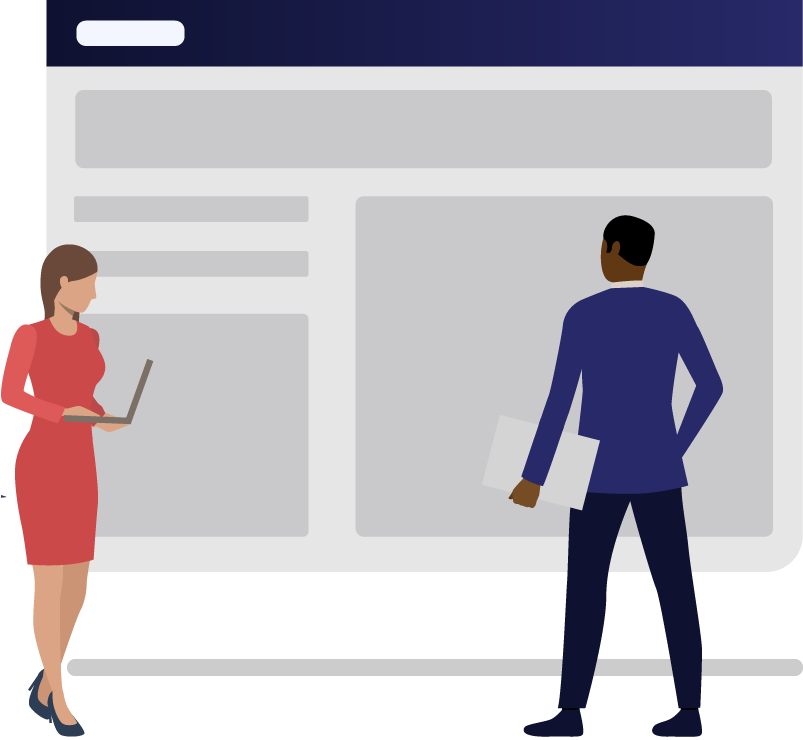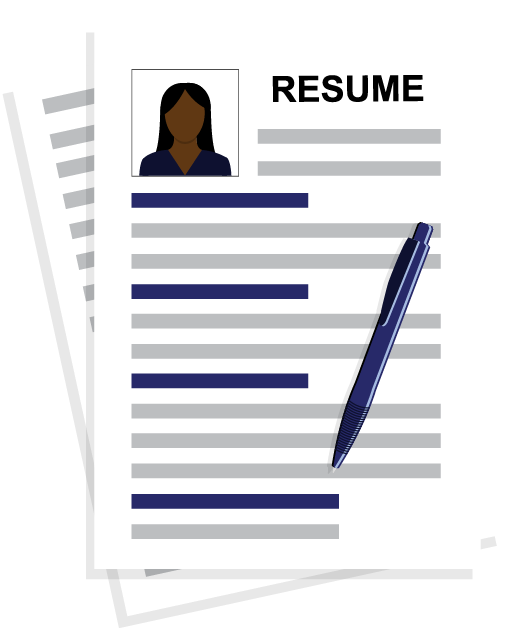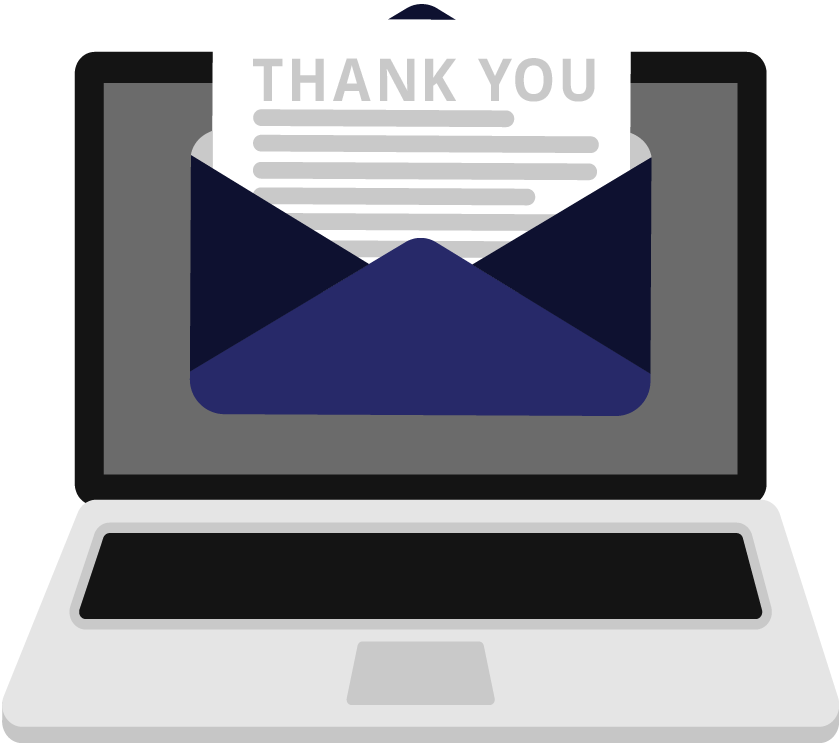
Interviewing for a new job often feels overwhelming. Unfortunately, that stress can show when you talk with a recruiter or hiring manager, leaving a less-than-perfect first impression. And though we’re currently in a candidate-driven market, you still need to outshine other individuals if you want to land your dream job. As a recruiter, I’ve interviewed hundreds of insurance professionals seeking to further their careers and I have identified several behaviors that set candidates apart. Here are my top five tips to help ease your stress and ensure you walk into your next interview prepared and ready to impress.

![]() Do research your potential employer. Looking at the company’s website and social media channels will give you a feel for its style and values. Read through the “about us” page, and look for its mission and vision statements. You should be up-to-date on any recent company news; read articles about the organization and review new press releases. If you know who will be interviewing you, check out their LinkedIn profiles, too. It’s also a good idea to look up key executives’ profiles so you’re familiar with their names and impact in the industry.
Do research your potential employer. Looking at the company’s website and social media channels will give you a feel for its style and values. Read through the “about us” page, and look for its mission and vision statements. You should be up-to-date on any recent company news; read articles about the organization and review new press releases. If you know who will be interviewing you, check out their LinkedIn profiles, too. It’s also a good idea to look up key executives’ profiles so you’re familiar with their names and impact in the industry.
Don’t wing it. To combat nerves and put your best foot forward, preparation is key. Having context for the conversations in your interview, such as recent product releases or new company initiatives, will help you craft well-developed answers and ask the right follow-up questions. This will demonstrate you’re a proactive, detail-oriented professional and will allow you to focus on building personal connections, not just navigating a minefield of unanticipated topics. Plus, doing some research ahead of time will make it easier to remember who needs to receive a thank you note.

![]() Do take a close look at the job responsibilities and requirements. Make sure you thoroughly understand what the company is looking for in the role and determine where your skills fit particularly well. You’ll want to call attention to these abilities and experiences, sharing specific facts and figures to support your successes. On the flip side, look into the areas you aren’t as skilled in and determine how you would fill those gaps. Do your work experience and relevant certifications make up for your lack of a post-graduate degree in your field? Be sure to plan how you can effectively communicate that to an interviewer.
Do take a close look at the job responsibilities and requirements. Make sure you thoroughly understand what the company is looking for in the role and determine where your skills fit particularly well. You’ll want to call attention to these abilities and experiences, sharing specific facts and figures to support your successes. On the flip side, look into the areas you aren’t as skilled in and determine how you would fill those gaps. Do your work experience and relevant certifications make up for your lack of a post-graduate degree in your field? Be sure to plan how you can effectively communicate that to an interviewer.
Don’t say you’ve accomplished things without offering hard facts to back up your related work history. Saying “I helped grow the business” is great; but you then need to follow it up with how. Were you instrumental in hiring the right talent to take on revenue-impacting projects? Did you lead initiatives that expanded business offerings? Share those details, using numbers where possible to help paint a clear picture of your experience.
![]() Do think through the questions your resume will prompt (e.g., if there are gaps in your job history or if it looks like you were abruptly let go). Be prepared to answer honestly. You don’t have to go into excessive detail, but you should put together a well-thought-out account of the situation, in case questions arise.
Do think through the questions your resume will prompt (e.g., if there are gaps in your job history or if it looks like you were abruptly let go). Be prepared to answer honestly. You don’t have to go into excessive detail, but you should put together a well-thought-out account of the situation, in case questions arise.
Don’t speak poorly of past employers, no matter the circumstances under which you left a company. If you were let go from your last job, for example, you could explain how the company reorganized and reduced roles in your function. Though it may have been a shock, do not blame your previous manager for not recognizing your worth. Instead, take this opportunity to share the skills you bring to the table that your prospective employer could leverage. Further, explain how you can use those skills to impact the organization beyond your immediate department.

![]() Do make a good first impression: make eye contact, don’t slouch, and answer succinctly but completely. If you’re interviewing in person, be polite in the elevator and at reception, give the interviewer a firm handshake, and bring more resumes than you think you need. You never know who may drop in on your interview, and you want to be prepared with a resume for each person you meet. If you’re interviewing via videocall or phone, your personal presentation still counts. Dressing professionally, even when the other party can’t see you, puts you in an interviewing frame of mind and lifts your confidence, setting you up for success. Additionally, don’t forget to test your video software ahead of time; nothing sets the wrong tone for a video interview like malfunctioning software delaying your meeting.
Do make a good first impression: make eye contact, don’t slouch, and answer succinctly but completely. If you’re interviewing in person, be polite in the elevator and at reception, give the interviewer a firm handshake, and bring more resumes than you think you need. You never know who may drop in on your interview, and you want to be prepared with a resume for each person you meet. If you’re interviewing via videocall or phone, your personal presentation still counts. Dressing professionally, even when the other party can’t see you, puts you in an interviewing frame of mind and lifts your confidence, setting you up for success. Additionally, don’t forget to test your video software ahead of time; nothing sets the wrong tone for a video interview like malfunctioning software delaying your meeting.
Don’t be late, but also don’t be too early. Perhaps you drove into the city and wanted to ensure you’d have enough time to park; however, showing up too early can put your interviewers in an uncomfortable position. They might be meeting with another candidate before you, for example, and you don’t want to impede on their goodbye and start your interview feeling awkward. If you’re more than 10 minutes early, find a nearby coffee shop and brush up on your notes instead of heading straight to the office.
![]() Do end the interview on a high note by asking thoughtful questions. This shows you’re invested in the role and committed to putting in the work necessary for success. If candidates don’t have questions, it often signals they aren’t very interested in the role or may be willing to take any job without fully understanding its responsibilities. You could ask for more details surrounding a particular job responsibility, for an overview of the company culture or just for next steps in the interview process.
Do end the interview on a high note by asking thoughtful questions. This shows you’re invested in the role and committed to putting in the work necessary for success. If candidates don’t have questions, it often signals they aren’t very interested in the role or may be willing to take any job without fully understanding its responsibilities. You could ask for more details surrounding a particular job responsibility, for an overview of the company culture or just for next steps in the interview process.
 Don’t skip sending thank you notes. And make them personal, not just a template. Calling out something from your interview shows you were interested in the conversation (maybe include the link for that article you referenced or wish the interviewer well on an upcoming vacation). The important thing is to acknowledge the time taken out of the interviewers’ days and thank them for their consideration. Email is more than acceptable and should be sent within 24 hours of leaving the interview. You can always follow up with a handwritten thank you note to put yourself back on the radar when it’s received a few days later.
Don’t skip sending thank you notes. And make them personal, not just a template. Calling out something from your interview shows you were interested in the conversation (maybe include the link for that article you referenced or wish the interviewer well on an upcoming vacation). The important thing is to acknowledge the time taken out of the interviewers’ days and thank them for their consideration. Email is more than acceptable and should be sent within 24 hours of leaving the interview. You can always follow up with a handwritten thank you note to put yourself back on the radar when it’s received a few days later.
What this all boils down to is preparation. If you take an intentional look at your resume and the position profile; think through the questions your interviewer may have and the ones you’d like to ask; and set yourself up to leave a professional impression, you’ll be ready to ace any interview.